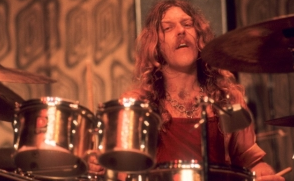
I have lots of thoughts associated with this time of year. Most are memories of the beginnings of summers past. The smell I most relate to this time of year is that of a high school locker; this time, it had to be cleaned out right to the bottom. The sight I most associate with early summer is an open road. It seemed with the first of July we drove to a cottage, a farm, maybe a campground. And the sound? Yes, mosquitoes, but mostly…
“Sittin’ in the sun and listenin’ to rock and roll,” sang Skip Prokop. “Sunny, sunny, sunny days…”
How could you listen to that song by Canadian rock band Lighthouse and not think of cut-offs, tie-dyes, sandals and (if you could convince the pub bartender you were of age) a pitcher of beer with all your pals now that school was out? Or, if you had your driver’s licence, summer meant heading to Lake Simcoe, Wasaga or Algonquin in the car. Windows down, summer breeze rushing in and the radio full volume playing Blood Sweat and Tears, Bob Dylan, Janis Joplin or The Doors.
On the other hand, having your driver’s licence was – for me – an occupational hazard in the summertime. Actually, I had two summertime occupational hazards: my driver’s licence and my parents’ trust to borrow a car on Friday nights. And that meant, yes, freedom. But it also meant responsibility. Since I was the non-singing/playing member of a rock band (“The Wizards,” I’m not kidding,) in the summertime when we got gigs to play, I served as manager, equipment roadie, sound check technician, ticket-taker, and, yes, after we’d set up the gear, I even drove around while the band warmed up, picking up friends to be in the audience.
“Ted’s 24-hour Taxi Service,” my mother used to call me.
“Yes,” I told my mom. “And all the fame I could imagine. Ha. Ha.”
But that was the beauty of music in the summertime. Fame often came from just being where the music happened. Because I was also a budding journalist with an interest in covering showbiz, I managed to hang out – by virtue of backstage interviews – with up-and-coming names in pop music in the 1960s and ’70s. I never got to Woodstock, but I attended folk, jazz, country and rock festivals that gave me access to some of the burgeoning performers of the era.
I got lucky and landed an interview with The Guess Who, at a Varsity Stadium concert, when Burton Cummings and Randy Bachman really liked each other. I interviewed Kris Kristofferson over a bottle of tequila upstairs in the green room (the rooftop) at the Riverboat in Yorkville. And when they were the top two country fiddlers in the world, I interviewed John Hartford and Vassar Clements under a tree at a bluegrass festival in the Niagara Peninsula.
“Turn your radio on,” Hartford used to sing. And we did.
I guess the time I really took music to head and heart for the summer was the summer of 1969. I had just finished my first year at Ryerson in its radio and television arts course. I figured I was the next Alan “Moondog” Freed, or at least disc jockey Al Boliska (remember “The World’s Worst Jokes” on CHUM?), because that summer I happened to convince a station manager in Lindsay, Ontario, that I could spin records, read live commercials and the news and make it all sound seamless. It didn’t matter that I worked from 11 p.m. to 6 a.m. six nights a week for about $100 a week. I was on the air. I had listeners. And I spun the music of summer.
“It’s the All-Night Summer Dance Party,” I used to say to introduce the show (I had to, because that’s what the manager of CKLY insisted I call it). And I would play summer music right across the spectrum – from Frank Sinatra’s “Strangers in the Night” and Elvis Presley’s “Are You Lonesome Tonight?” to “Everybody’s Somebody’s Fool” by Connie Francis and, of course, Nat King Cole’s “Lazy, Hazy, Crazy Days of Summer.” And in between I snuck in a few LP cuts by the Beatles, Lovin’ Spoonful, Frank Zappa and as many Motown 45s as I could sneak into the studio.
Having my cake, did not mean I could eat it too. Because I did the all-night show, meant I had to sleep all day. Sleeping until mid-afternoon and having to be back at the radio station bright-eyed and bushy-tailed each night, meant I didn’t get to the beach much. I couldn’t drink much, if at all. And I had to leave summer evening parties just as they got rolling. Ah, the price of fame. But it was worth the sacrifice? There was a fan club, a mug saved for me at the local watering hole in Lindsay. And occasionally somebody recognized my voice as the all-night music DJ.
Summer bliss.